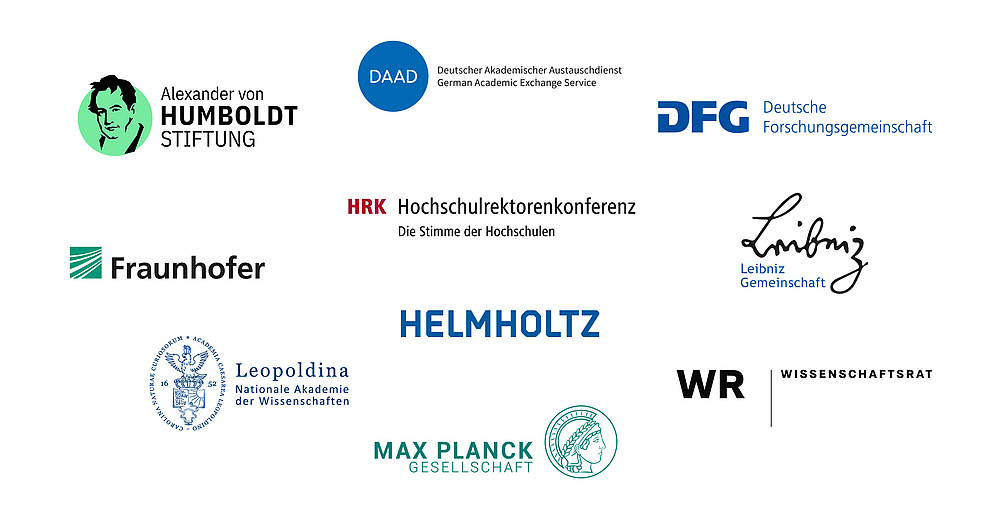
Contact
Press, Communications and Marketing
Tel.: +49 228 833-144
Fax: +49 228 833-441
presse[at]avh.de
On 25 May 2023 the European Parliament´s ENVI Committee will hold a hearing on the European Citizens’ Initiative (ECI) ‘Save cruelty-free cosmetics – Commit to a Europe without animal testing’. The European Commission will adopt a formal response to the Initiative by 25 July 2023. Starting from specific claims on animal testing for cosmetics as well as for risk and safety assessment of chemicals, the ECI calls for a roadmap to phase-out the use of animals in research in general.
The Alliance of Science Organisations in Germany calls upon European policy makers to integrate into the debate a thorough scientific assessment of the potential and limitations of animal and non-animal approaches and to keep available all tools required to further enable medical advancements. While non-animal methods are becoming increasingly powerful for specific applications, for many fields in research and testing suitable non-animal methods are currently not sufficiently advanced or not available at all. The use of animals is critical to understanding the function of complex biological systems and to safely and ethically conduct human clinical studies. Understanding body functions and diseases of humans and animals and continuously improving healthcare including the development of new treatments requires the combination of animal and non-animal studies.1
As regulated by European legislation, animal experiments are allowed only if no alternative method is available for the respective research question. Our research organisations are committed to replacing, reducing and refining animal experiments whenever this is possible. The 3R principle is the ethical guideline for our research and we support innovation for the development of alternative approaches and the implementation and accessibility of non-animal methods. As has been emphasized in the formal response of the European Commission to the European Parliament´s resolution in September 2021 2 the guiding principles for an ethical use of animals for research and the “final goal of full replacement of procedures on live animals […] as soon as it is scientifically possible to do so” are enshrined in EU Di-rective 2010/63/EU. At the same time, the EC response highlights that “animal use in science is heterogeneous” and that “it is not possible to predict when scientifically valid methods will become available that can replace particular animal procedures”.
We emphasize that scientific progress, in particular at the frontier of knowledge, does not follow distinct management plans, milestones or deadlines. Any such assumption disregards basic principles of how research produces new knowledge and innovations. As has been showcased during the COVID-19 pandemic, essential therapeutic and diagnostic innovations build on knowledge that has been gained over decades of basic research making use of a rich set of complementary methods including animal research.
Substantial progress has been made in the development of methods contributing to the reduction and replacement of animal procedures in the recent past. Non-animal methods such as cell culture methods, organoids and computer-based techniques, are increasingly used in research and testing. Fields of action to further promote the reduction of animal use include promoting the implementation and accessibility of non-animal methods for broader use, enhancing support and recognition of work to develop new 3Rs methods and techniques in the academic reward systems and giving greater credit to work on validating non-animal methods for use in safety and risk assessment.
Europe has a very strict legislation making animal research possible only on highest ethical levels. In this framework animal-based research must be continued while, at the same time, fully exploiting and further advancing the potential of non-animal methods. A hasty exit from animal research would have considerable effects on health research, healthcare, and the health of European citizens at large. It would also make Europe highly dependent on other nations for the development of innovative medical treatments. The Alliance of Science Organisations in Germany underlines it would be irresponsible to impede medical advancements by banning methods that are still essential.
1 This has also been one of the key results of a high-level Science in dialogue discussion “The future of Life Science research in Europe – how animal and non-animal approaches can contribute”, jointly hosted by the Alliance of Science Organisations in Germany, the French National Alliance for Life Sciences and Health (AVIESAN), the Netherlands Organization for Health Research and Development (ZonMw) and the Dutch Research Council (NWO) in October 2022.
2 European Parliament non-legislative resolution on plans and actions to accelerate a transition to innova-tion without the use of animals in research, regulatory testing and education, https://www.europarl.europa.eu/doceo/document/TA-9-2021-0387_EN.html

The Alliance of Science Organisations in Germany is an association of the most important German research organisations. It regularly publishes statements on central issues of research policy. The German National Academy of Sciences Leopoldina is a member of the Alliance and has taken the chair for 2023. Further members of the Alliance are the Alexander von Humboldt Foundation, the German Academic Exchange Service (DAAD), the Deutsche Forschungsgemeinschaft (DFG, German Research Foundation), the Fraunhofer-Gesellschaft, the Helmholtz Association of German Research Centres, the German Rectors‘ Conference (HRK), the Leibniz Association, the Max Planck Society, and the German Science and Humanities Council (WR).

Media Contact
Nationale Akademie der Wissenschaften Leopoldina
Abteilung Presse- und Öffentlichkeitsarbeit
Tel: +49 (0)345/47239-800
presse[at]leopoldina.org
www.leopoldina.org
Expert Contact
Dr. Christoph Limbach
Deutsche Forschungsgemeinschaft (DFG)
Tel. +49 (228) 885-2865
Christoph.Limbach[at]dfg.de
www.dfg.de
(press release 13/2023)
Every year, the Alexander von Humboldt Foundation enables more than 2,000 researchers from all over the world to spend time conducting research in Germany. The Foundation maintains an interdisciplinary network of well over 30,000 Humboldtians in more than 140 countries around the world – including 63 Nobel Prize winners.
